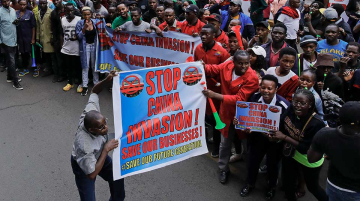The last year or so has seen a constant drip-drip-drip of social media videos showing Chinese managers abusing African workers. The trend has understandably cast a harsh light on Africa-China labor relations. To my mind, the resultant framing of Chinese labor practices in Africa as neo-colonial is an unfair exaggeration. But it’s not entirely far-fetched either. Chinese investors and companies are coming to Africa to reap as much profit as possible. The problem is, this work can’t escape the history of how colonialism organized Africa labor, and how that organization shaped African societies. It’s no surprise that pursuing maximum profit in an environment that runs on a colonial pattern of labor exploitation will end up replicating that exploitation.
The European colonial order in Africa was tailored for the mobilization of labor via the imposition of foreign-oriented value systems. Gaining independence and reforming constitutions in countries like Kenya weren’t enough to change entrenched attitudes towards low-wage laborers. Across Africa one still sees familiar neo-colonial patterns of labor exploitation. Africa inherited and maintained colonial ways of organizing labor because it had to support the capitalist extraction that has defined its position in the post-colonial world. This led to its current orientation where African labor is subordinated at the behest of the owners of capital and foreign investors and multinationals.











